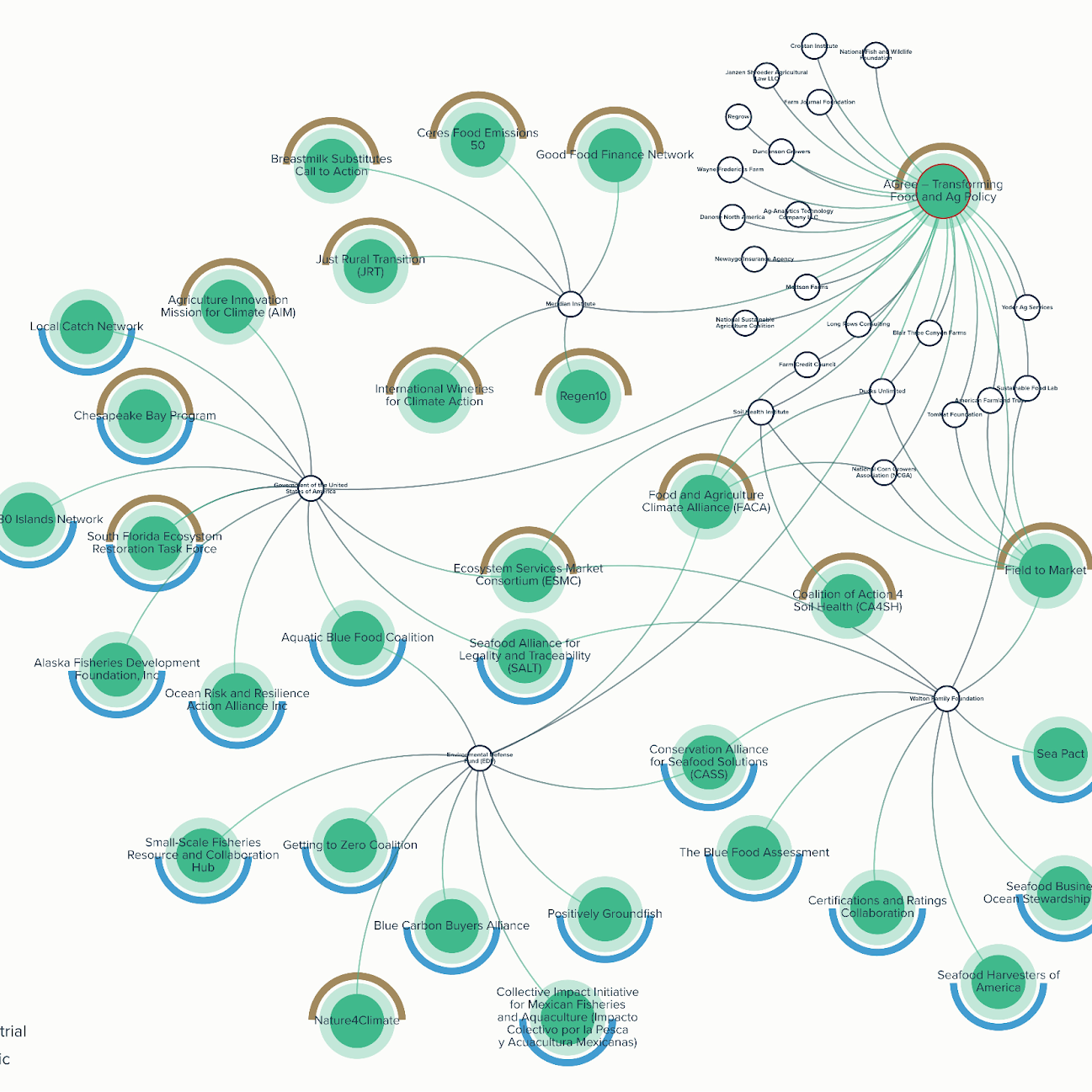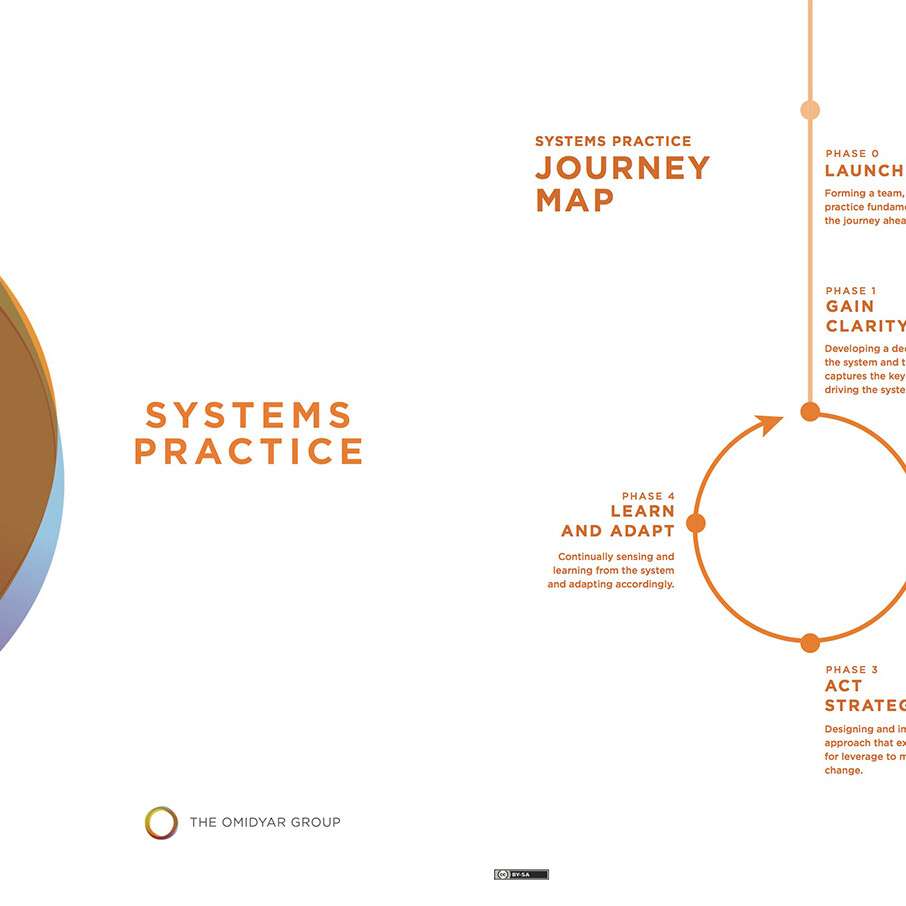In May 2024, OCTOPI embarked on a project with a question in mind:
“How can we better understand, document, and map existing practices of reciprocity, exchange, resource efficiency, and coordination in lower-income communities to make visible the contributions of grassroots groups to the growing knowledge commons on circularity?”
OCTOPI, a social design studio based in Cape Town, South Africa, is dedicated to supporting collective action against systemic oppression. We work with international NGOs, social movements, and grassroots initiatives to reimagine more inclusive futures through narrative activism, systems design, and solidarity.
This project took us to Makers Valley, an area in Johannesburg, South Africa, known for its creative entrepreneurship and active community initiatives. Over the course of a month, as part of the Goethe Institute’s “Sustainable Together” residency, we engaged deeply with individuals and groups across multiple neighbourhoods, mapping community contributions to circularity and neighbourhood wellbeing.
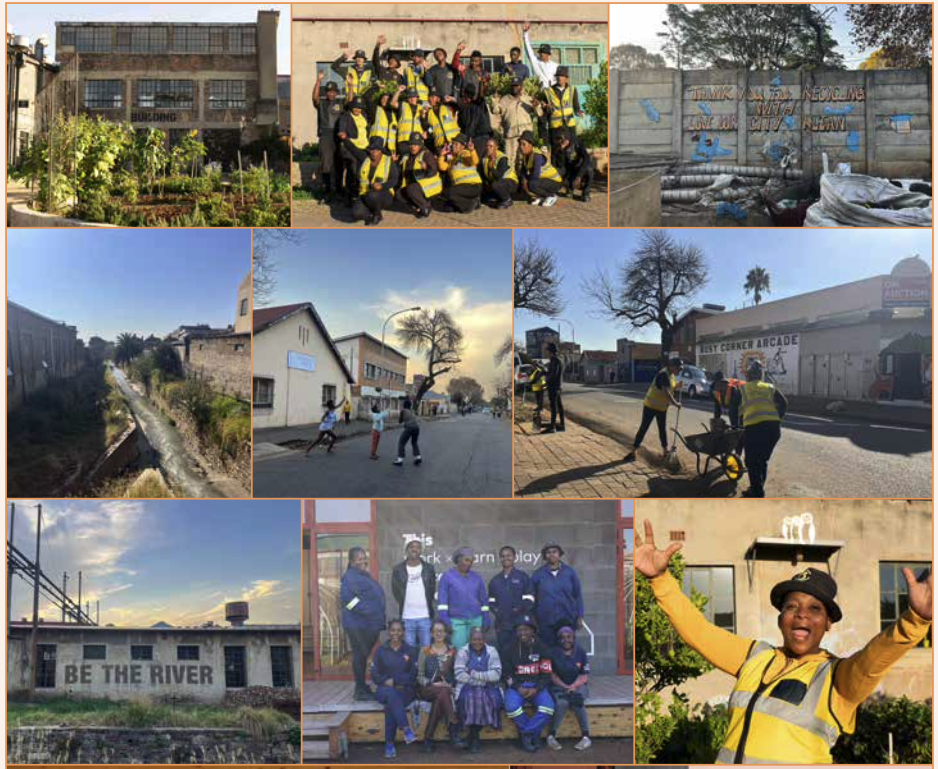
We chose Makers Valley, on the outskirts of Johannesburg’s CBD, for its diverse socio-economic landscape and heritage. A continuous flow of people characterises the area—South Africans and foreign nationals alike—seeking economic opportunities in the country’s largest city. In this space, where some residents have lived for decades and others only a few days, understanding the community dynamics was crucial. It allowed us to see how individuals, collectives, and organisations contribute in different ways to the wellbeing of their neighbours and the land they inhabit.
Our partnership with the Makers Valley Partnership was key to our local engagement. Already deeply embedded in the community, this organisation facilitated connections with individuals and networks that were essential to our research. These open doors and existing lines of trust deepened our understanding of the neighbourhood, with key community members guiding us through these networks and demonstrating how well connected individuals can catalyse broader community impact.
In an area where government support is scarce and many initiatives have failed, citizen action seems to have become the social fabric holding the community together. Our methodology had two main goals: first, to facilitate dialogue among locals, giving them space to reflect on and recognise their contributions to the community; and second, to use those dialogues to gather information that could be shared with external stakeholders to encourage greater support. We drew inspiration from Othering and Belonging’s Transformative Research Toolkit, using participatory, storytelling-based approaches in focus groups, neighbourhood walk-and-talks, and individual interviews. This approach fostered collective sense-making and flexible conversations, allowing us to gather rich, authentic insights into the community’s dynamics and contributions.
Throughout our research, we identified key themes of value within the neighbourhoods: knowledge, resources, services, infrastructure, and relationships held amongst individuals, collectives, organisations and institutions.
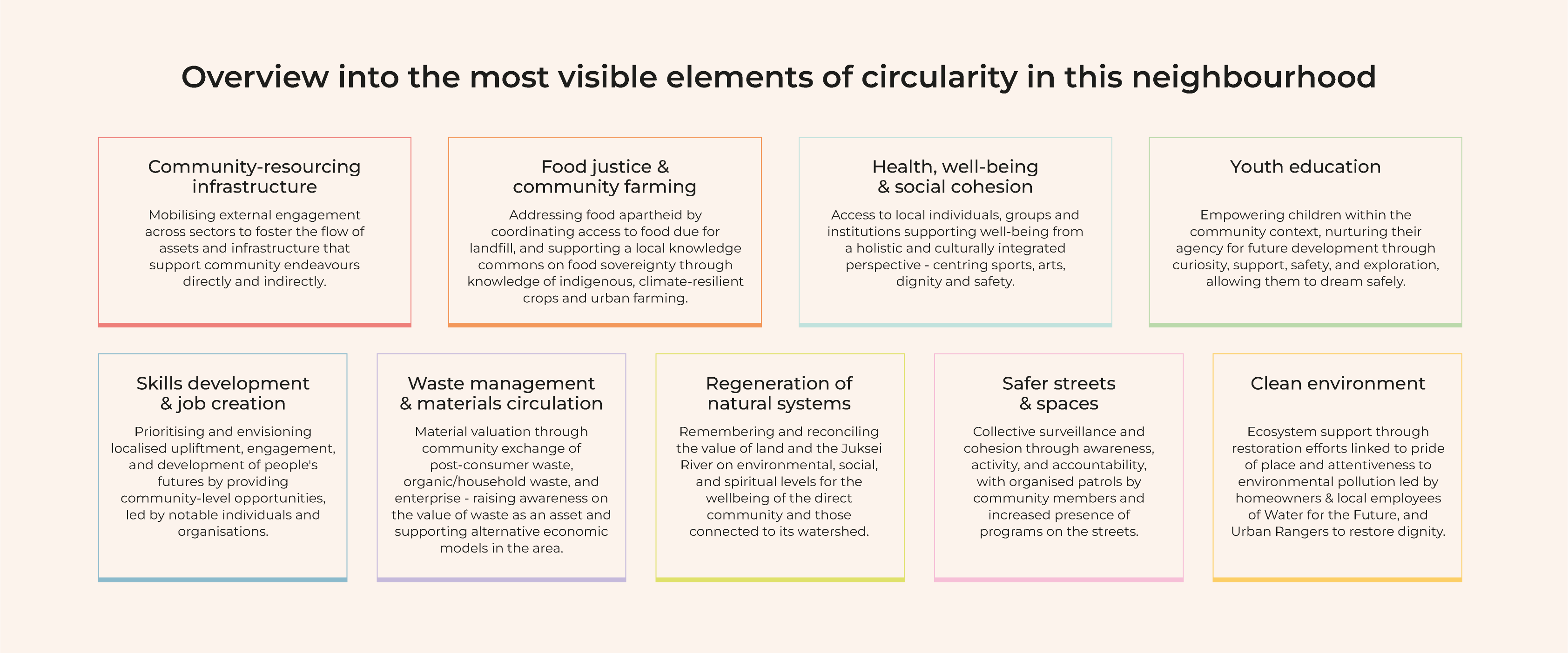
From community-organised patrols to NGOs redirecting food waste from national sources to local kitchens, the proximity of local networks to resource-rich individuals and businesses was a central finding to the sustainability of impact in the area. When community-held knowledge and relationships are supported by consistent resources and infrastructure, their impact can be multiplied and sustained. We believe this approach could serve as a model to enhance community wellbeing through local empowerment and connectivity.
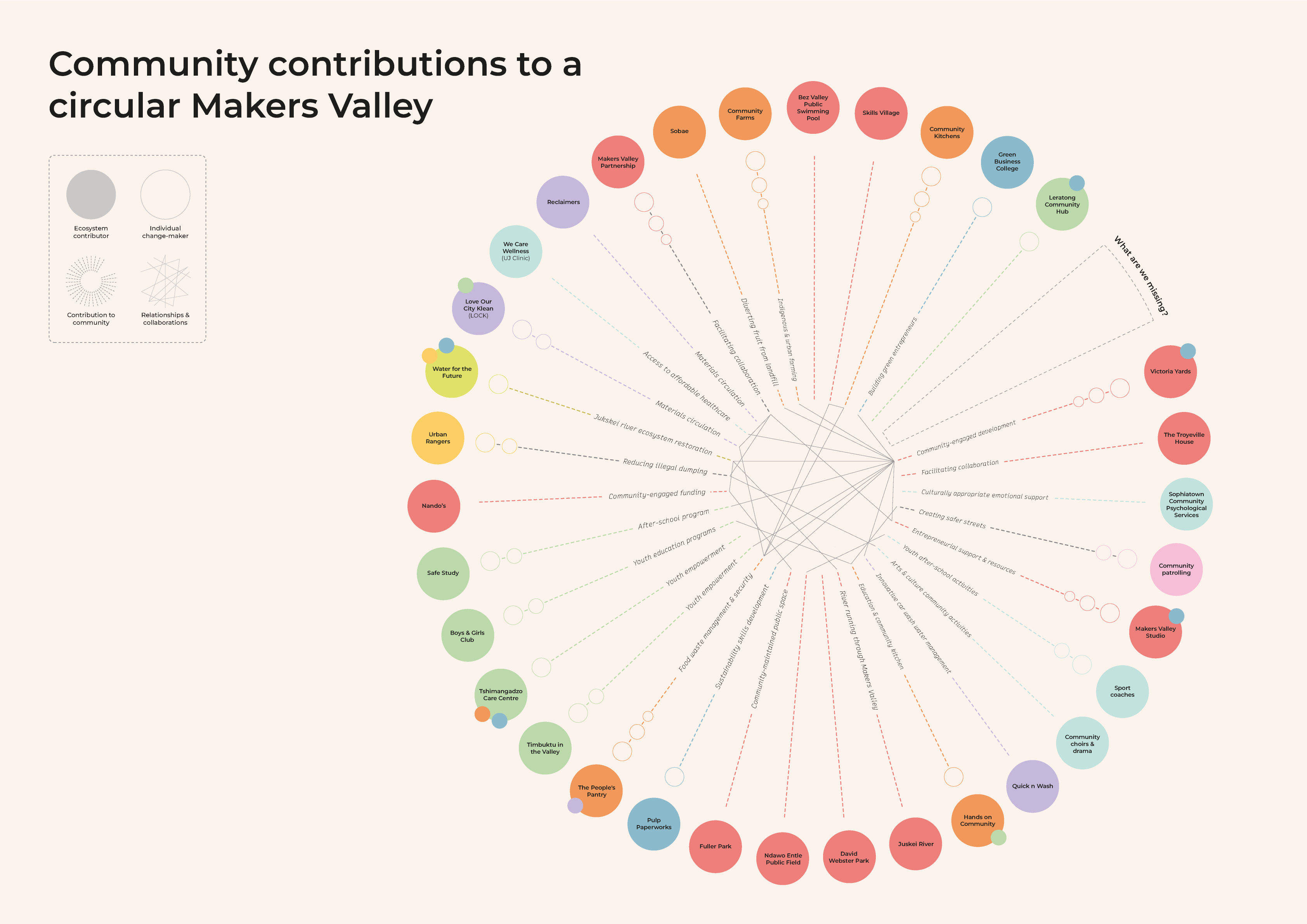
With just a month to explore, document, and map the area, our findings only scratched the surface of the burgeoning efforts and underutilised potential within the community. Moving forward, our goal is to develop an open-source toolkit for mapping neighbourhood-level citizen contributions to wellbeing. This adaptable resource seeks to help communities leverage their own knowledge, relationships, and resources for locally-led development, while also serving as a valuable tool for external stakeholders who wish to support these efforts.
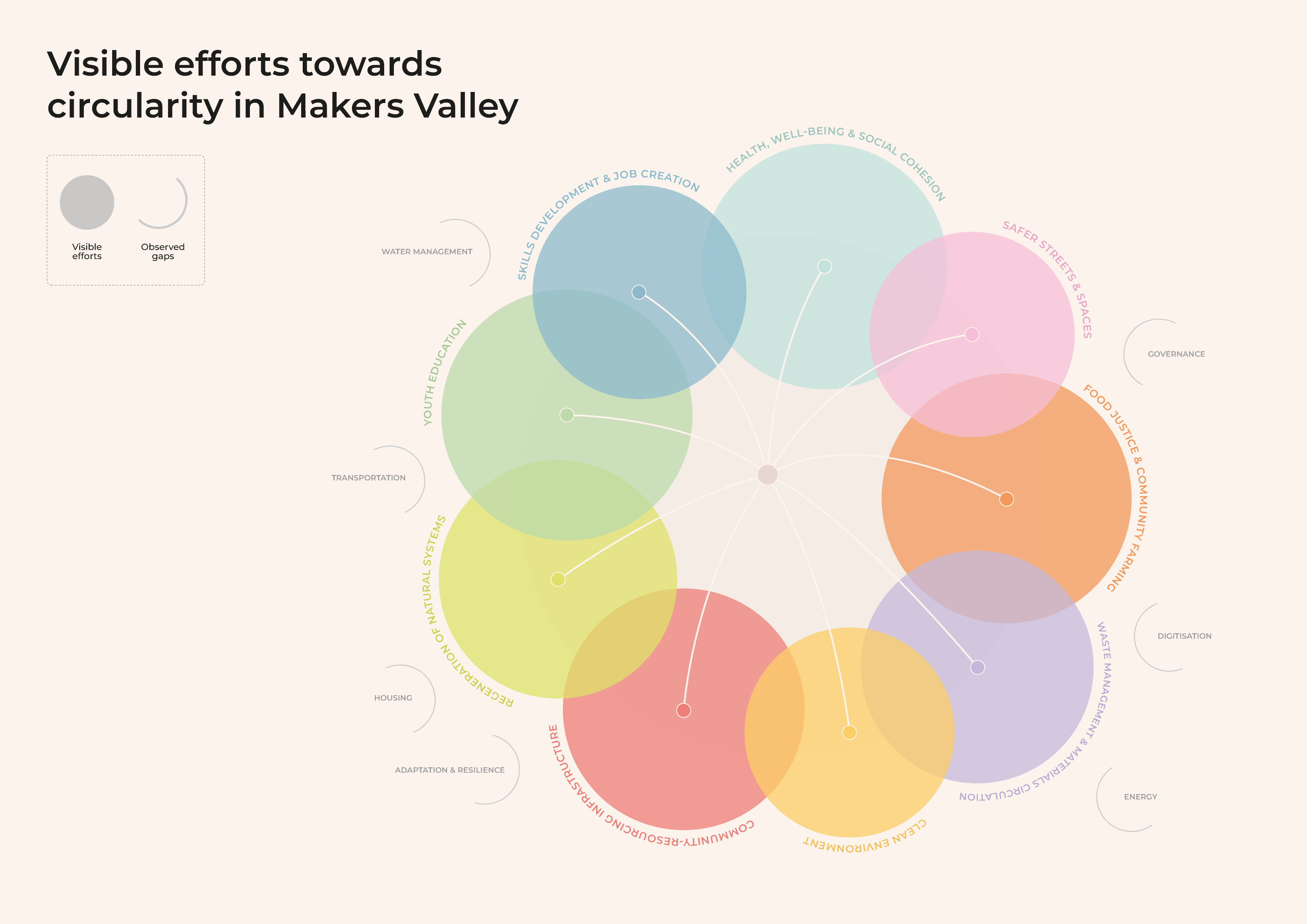
The toolkit we aim to develop is invaluable because it encapsulates a tested and iterative process that draws on the unique strengths of local communities while being adaptable for broader applications. By refining the methods we’ve already piloted, the toolkit will provide a practical, scalable framework that respects and amplifies the principles of community ownership, sustainability, and inclusivity. The value of this toolkit lies in its ability to facilitate the mapping and leveraging of underutilised resources and knowledge within communities, creating a ripple effect of positive change that is both locally grounded and globally resonant. It empowers communities to take charge of their development, offering a structured yet flexible approach that can be adapted to various contexts. The toolkit’s emphasis on collective listening and community-led action ensures that solutions are not only effective but also deeply rooted in the lived experiences and aspirations of the people they serve. For anyone looking to foster sustainable, resilient, and inclusive development, this toolkit could provide a pathway to doing so in a way that honours and elevates the voices of those who are often marginalised in traditional development models.
For those interested in exploring our work further, we invite you to download our detailed report, Mapping Contributions to Circularity and Wellbeing in Makers Valley. This report offers an in-depth look at our findings and methodology.
OCTOPI is seeking thought partners, leaders, and funders to help develop and roll out this toolkit. While OCTOPI will lead the ongoing mapping and development, the toolkit will be made open-access for widespread use and dissemination. If you’re interested in supporting this initiative or learning more about our work, please reach out to Leila Kidson, [email protected].
Together, we can support the growth of resilient, inclusive, and thriving neighbourhoods driven by community-led development.
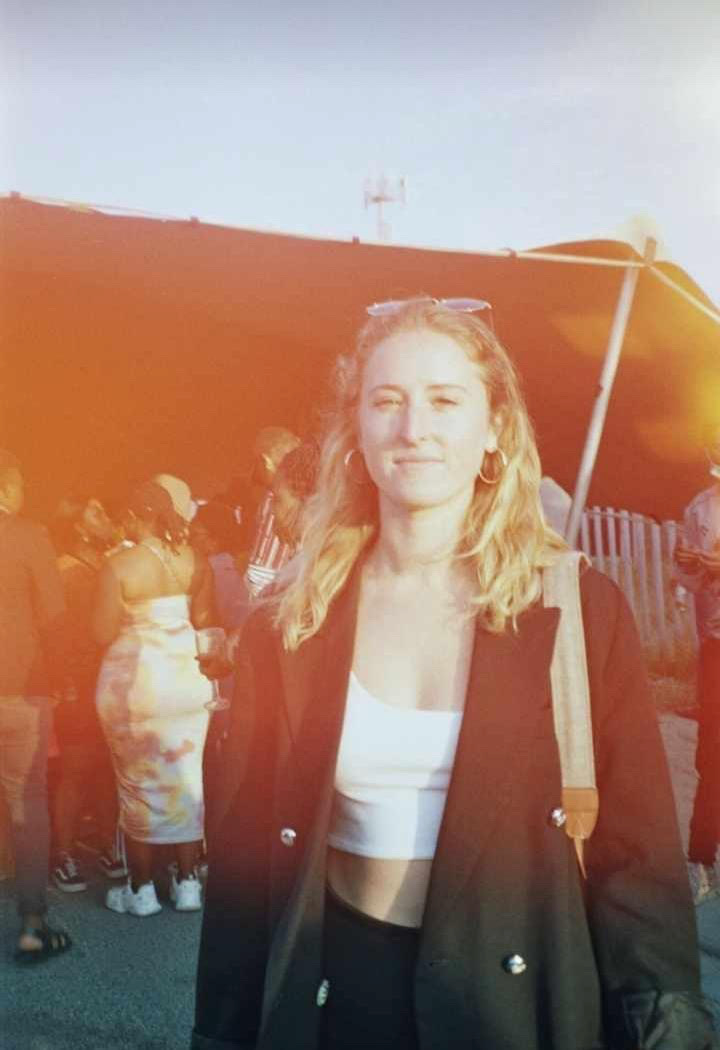
Leila Kidson, co-founder of OCTOPI, is committed to fostering a world that serves the majority. She believes in the power of empathy, systems thinking, and life-centered design to build a society rooted in diversity, interdependence, and shared abundance. Focusing on collective sense-making and storytelling, Leila uses her expertise to support systems that promote non-dominance and mutual respect, driving progress toward a more equitable society. As a systems designer, narrative change-maker, researcher, and facilitator, she is dedicated to bearing witness to the world and centering care in her work.
For more information on OCTOPI:
https://www.instagram.com/octopi_africa/
https://www.linkedin.com/company/octopi-africa/
Network Weaver is dedicated to offering free content to all – in support of equity, justice and transformation for all.
We appreciate your support!
Related Posts
November 10, 2020

